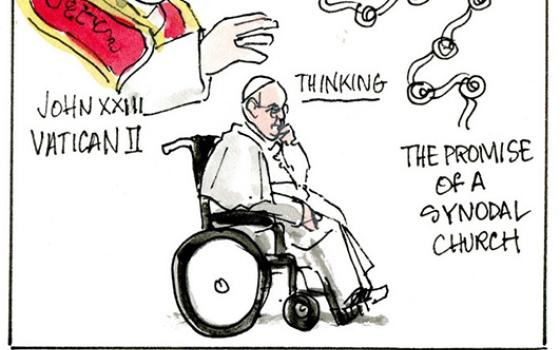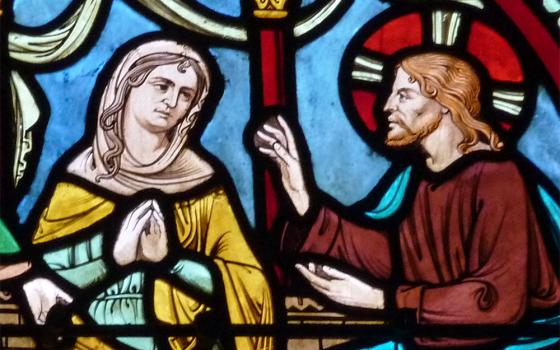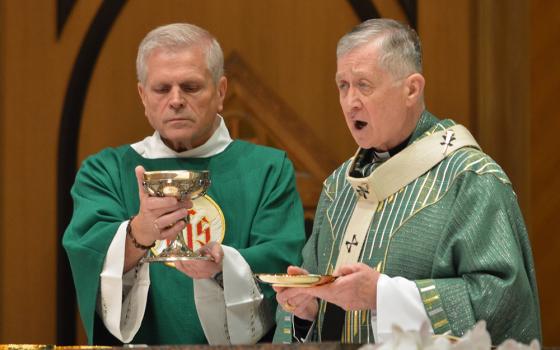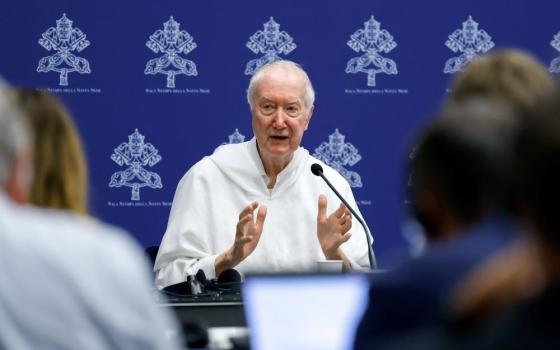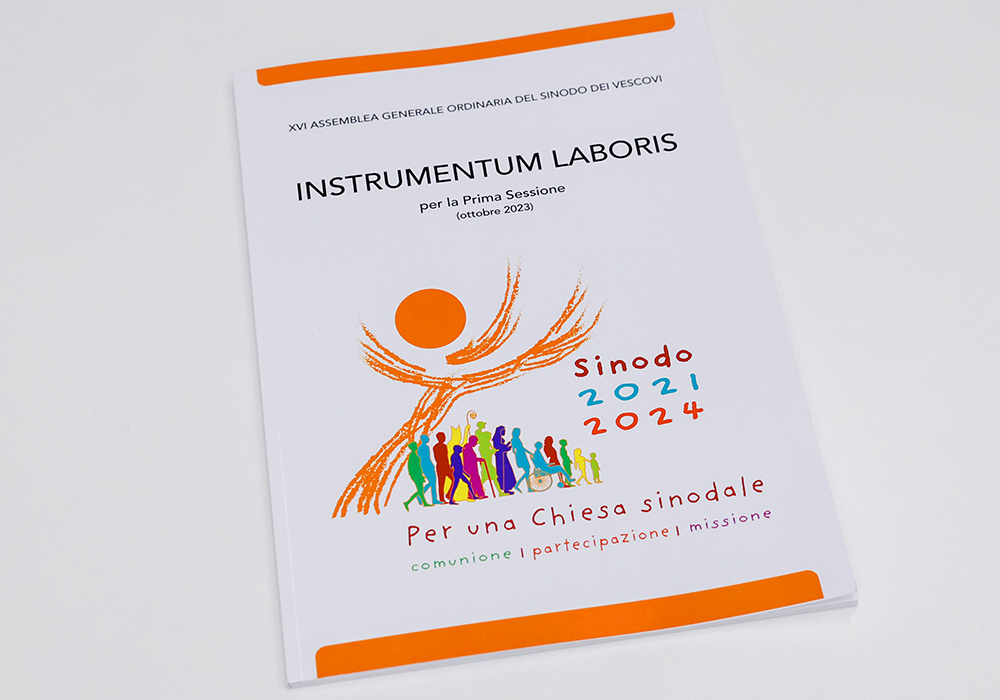
A printed copy of the instrumentum laboris, or working document, for the world Synod of Bishops on synodality is seen in the Vatican press office June 20. (CNS/Lola Gomez)
When the Vatican released the working document for the synod on synodality on June 20, many Catholics, including those calling for church reform, expressed hope that the next steps toward the October 2023 and 2024 gatherings will continue a process of dialogue, openness and potential for change.
We agree: The 60-page document, called the instrumentum laboris, includes several positive signs that the three-year synodal process may be the beginning of a significant shift in the church. At the very least, it looks like it will not be a "done deal," as were gatherings of bishops under previous popes.
Instead, most — though not all — issues raised during synodal listening sessions around the world made it into the document that is a blueprint for the conversations in Rome in the fall. The ordination of women to the priesthood is the glaring exception, though there is mention of possible "new ministries" for women to effectively participate in "discernment and decision-making bodies."
The document does raise the possibility of women's ordination as deacons, as well as issues of access to the priesthood for married men, reparations for sexual abuse and abuse of power, and the integration of LGBTQ+ Catholics (and it uses the term "LGBTQ+" — previously stripped from post-synodal documents).
Some of these topics have been part of previous synods (particularly the Amazon synod and the synod on youth and young people), so we can't claim this is a first for them to be on a synod agenda. But neither have they disappeared from the documents and discussion as this synodal process has progressed, as some progressive Catholics feared.
Instead, it's clear these are issues that are, as one activist put it, no longer "on the margins." And they are issues that sadly prompt much of the exodus of U.S. Catholics from regular Mass attendance and affiliation with the church.
Advertisement
The working document also focuses on how the church can better address the challenges of the modern world, including serving the poor, migrants, the disabled and victims of sexual abuse, violence and other injustices. Such an outward-facing perspective is urgent and needed.
In addition, the format of this instrumentum laboris itself is unique. In the past, working documents served as initial drafts of the final report, but this one is structured with an introductory section followed by a series of questions meant to guide synod discussions. As NCR columnist Michael Sean Winters put it: "Whoever came up with the idea of framing the document in terms of questions, rather than a draft text, deserves a bonus." The lack of predetermined answers to the questions is encouraging.
To be sure, the process has not been seamless. Some bishops and pastors in the United States did the bare minimum — or less — in the first phase of the consultative conversations. During the continental phase, the bishops' handpicked delegates for the North American grouping reportedly veered in different directions than the diocesan phase conversations. During recent synodal listening sessions with U.S. theologians, concerns surfaced about issues missing from the continental document — especially racism. And the U.S. bishops' insistence that the theologians keep the conversations confidential seemed antithetical to the openness of the synodal process.
Yet, we can't help but remain encouraged, especially given the historic addition of lay men and women who will, for the first time, be full voting members, when 370 participants meet for the first session Oct. 4-29. The selection and announcement of those lay members will be the next big signal about what to expect as the synod process moves forward.




